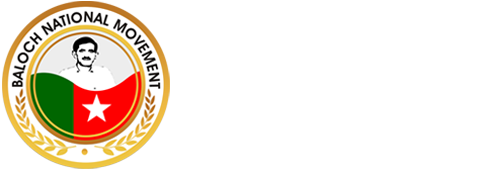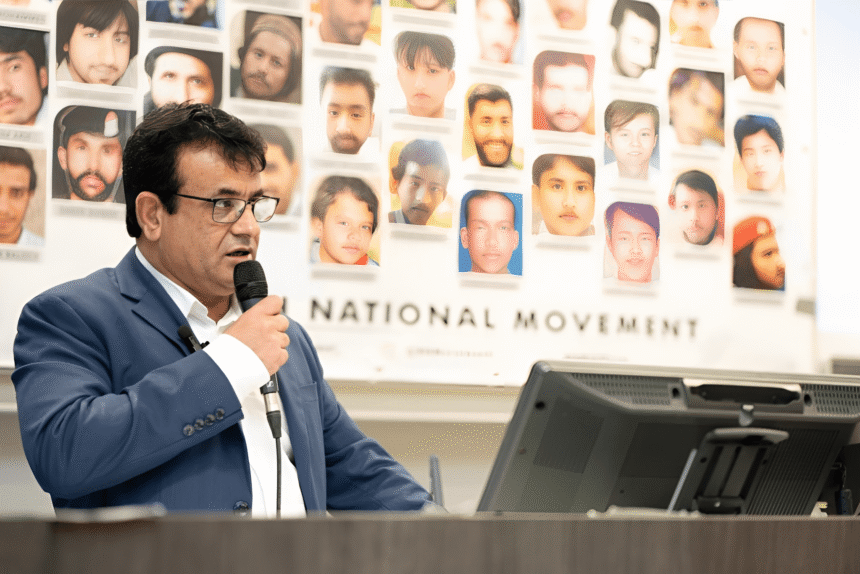Ladies and Gentlemen,
I express my gratitude to our esteemed speakers and participants who have joined us today.
Let me commence with the poignant Balochi verses by Late Mubarak Qazi:
“چو نہ انت پلیں پلستین ءِ من ءَ گم پر نہ اِنت
من بلے انوں وتی ڈیھ ءِ گماں چیر ءُ سر آں”
“It is not that I do not feel the pain of Palestine, but at the moment, I am surrounded by the sorrows of my own country.”
I urge reflection on why we hesitate to celebrate the bravery of our young ones in the Baloch movement. While a Palestinian child facing Israeli tanks is hailed a hero, we struggle to recognise a Baloch youngster’s courage. Figures like Sammi, Mehlab, Dr. Mahrang, Dr. Sabiha, Dr. Shali, Beebow, Saira, and others deserve global acknowledgment, for they will become significant in Baloch history.
Seema, an emblem of the struggle, stands for Baloch missing persons, yet the world remains silent. Females, now targets, play pivotal roles. As we write history, let us familiarize ourselves with countless unsung heroes emerging.
In the face of these ongoing atrocities, the international community must recognize the gravity of the situation in Balochistan. The ruthless policies pursued by the Pakistani military not only violate the fundamental rights of the Baloch people but also pose a broader threat to regional stability. The echoes of suffering in Balochistan resonate far beyond its borders, and the world must not turn a blind eye to the urgent need for intervention.
While the world may currently be unaware of our people and our movement, I fear that recognition delayed is justice denied.
Balochistan’s struggle is a testament to the resilience of a people determined to assert their rights in the face of adversity. The brave individuals, like Seema and the young heroes mentioned earlier, symbolize the indomitable (unbeatable) spirit of a population striving for justice and freedom. Their stories should inspire solidarity and action on the part of the global community.
In recent years, Pakistan has adopted a brutal policy of fake encounters, resulting in the death of dozens of Baloch individuals. One such recent case is that of Balach Baloch from Turbat. Detained by the army on October 29th and later presented to a local court on November 20th, Balach, along with three other forcibly disappeared persons, were found dead on November 21st, with their bodies handed over to the hospital administration. In response, Balach’s family, devastated by this blatant injustice, refused to bury their loved one. They initiated a sit-in protest at Fida Shaheed Chowk in Turbat, demanding justice and the registration of a case against the perpetrators, notably the Pakistani army. Although, after eight days, they buried Balach, their demand for justice persisted, and the protest turned into a long march from Turbat to Quetta, insisting on the registration of the case.
As we gather here today, let us not forget the power of information and the role of media in shaping public opinion. The controlled narrative imposed by certain forces prevents the truth from reaching the wider world. We must strive to break through these barriers, leveraging the collective strength of our voices to shed light on the untold stories of Balochistan. By fostering awareness and understanding, we can pave the way for international support that is crucial in ending human rights violations in the region.
Today, as we observe International Human Rights Day, it is our duty and the world community’s duty to raise our voices against these gross human rights violations and put an end to the culture of impunity that allows such atrocities to persist. Human rights are universal, requiring our commitment, especially from the global community, to ensure justice for every individual, regardless of their location.
Thank you.


